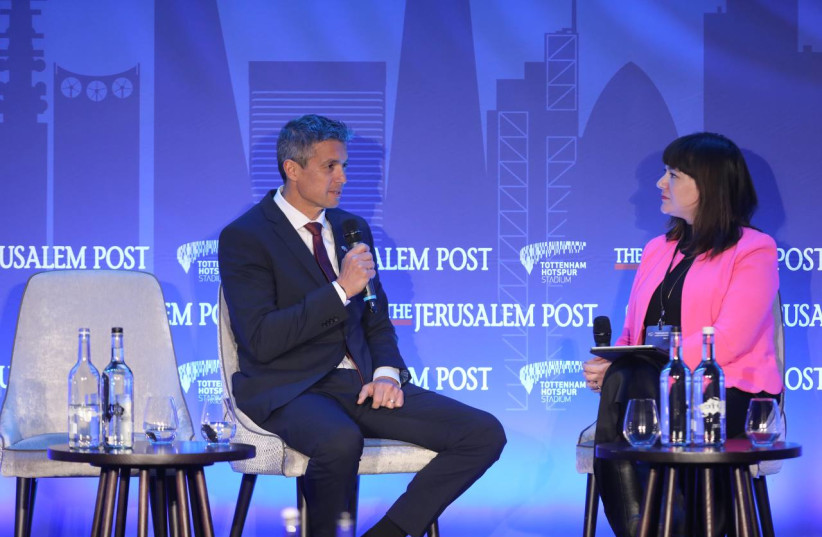Communications Minister Yoaz Hendel on Thursday said a taskforce he heads is studying how to locate potential terrorists to thwart their plans, based at least partially on social-media posts.
Israel is looking at “how you supervise and analyze and how you find signs that Muslims inside Israel and others are thinking about launching terror attacks,” he said at The Jerusalem Post Conference in London. “This is a difficult issue.”
“We need to find checks and balances for freedom of speech… and the need to protect Israel from people thinking about launching terror attacks,” he added.
For more panels and interviews from The Jerusalem Post London Conference, click here >>
Hendel said he had recently met with his British counterpart, who told him England was seeking to pass a bill that will “put responsibility on social networks for damage to kids, incitement and antisemitism.”
“We are in a wave of terror attacks,” Hendel said. “As long as the State of Israel exists, you will probably see young fundamentalist Muslims who will stab Jews or try to kill Jews.” Most Arab-Israelis and Palestinians were nonviolent, he said.

England and Israel are facing some similar problems in trying to reduce how much “young terrorists will be inspired by content on platforms,” Hendel said.
He praised England’s potential move toward placing more responsibility on social-media giants for terrorist content on their platforms. “We need to look at how to do that based on legal aspects in Israel,” he said.
Hendel said he has asked Israeli television networks to try to cut back on how much they broadcast certain kinds of content posted by terrorists, even if part of covering a story would normally include airing some of that content.
Israel needs to “find ways to limit publicizing short movies from those attacks,” he said. “We understand Muslims are inspired by different content on social networks and materials. But we are a democratic country. We cannot stop and eliminate 100% of [terrorist and problematic] content. It’s impossible.”
“But what I am trying to do is put some responsibility” on platforms, and “it doesn’t matter if it’s a broadcaster, a foreign broadcaster or Facebook,” Hendel said. “They have their own community laws, and part of it is to stop antisemitism and violent materials content, which can save life or damage life.”
During the 2015-2016 Knife Intifada, the Shin Bet (Israel Security Agency) pioneered analyzing social media to thwart attacks by potential lone-wolf attackers. This tactic is receiving a whole new level of attention following the recent wave of terrorist attacks in Israel.
